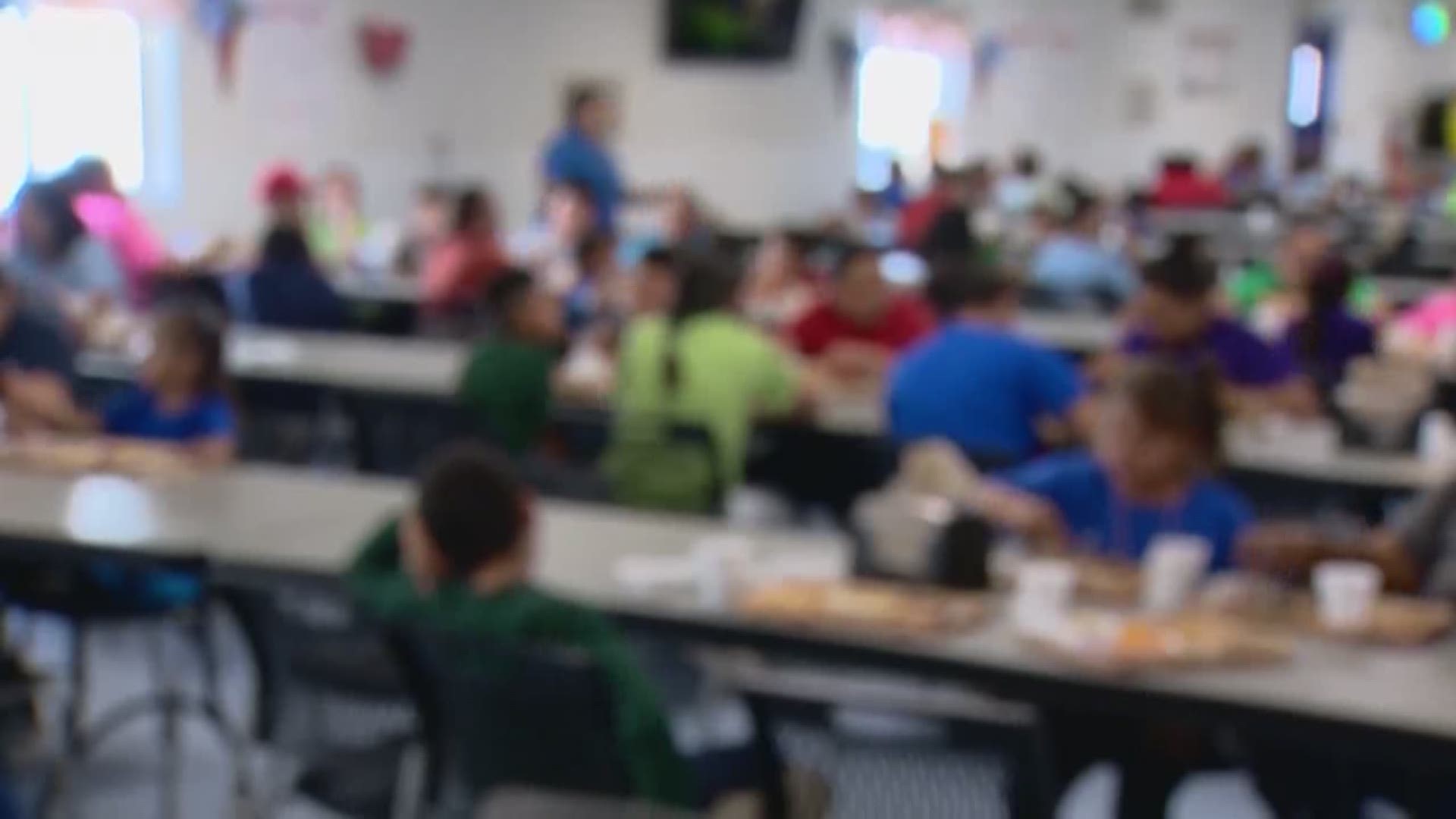DILLEY, Texas — Immigrations and Customs Enforcement invited media to the South Texas Family Residential Center for a tour Friday, ending with comments by acting ICE Director Matthew Albence.
"It's important that we have transparency—both to those on the Hill, lawmakers, as well as the American public," Albence said. "So they can see the care and condition under which these individuals are being kept as they go through the immigration court process or, right now, as they go through the credible-threat-screening process."
The South Texas Family Residential Center is one of two facilities of its kind; the other is the Berks Family Residential Center in Pennsylvania. The center in Dilley can house up to 2,400 people, though so far it has only held a maximum of 2,200, according to a facility supervisor. On this day, ICE said 900 women and children were there.
The center houses women, girls and boys 15 and under while they await the results of credible threat hearings.
- ICE says that, when immigrants arrive, they enter a check-in area where they receive food, medical screenings, a list of legal services, and a credible fear worksheet. All females 10 and older get pregnancy tests, and everyone gets six sets of clothing, which they may keep. There are also interviews for alternatives to detention, which include ankle monitoring.
- An on-site medical center has two pediatricians, mental health staff including twenty licensed social workers, two family practice physicians, two psychologists and a psychiatrist, along with more than 40 nurses. Women and children receive all state-mandated immunizations, and if they have additional medical needs, the center has relationships with hospitals in surrounding cities.
- In a dining facility, they receive three meals a day, with back-up offerings for people who have allergies. If they miss a meal they can pick up a box lunch instead, according to ICE.
- ICE says the on-site library has more than 10,000 books in various languages, an Internet cafe where people can stream music, check email or do research. They cannot use social media. Parents can do arts and crafts with kids, and there is a law library for people who want to represent themselves. It also includes a 24-hour "Know Your Rights" presentation on video screens, and Rosetta Stone for people working to learn languages.
- In living complexes, families are housed together, in rooms that house up to 12 bunk beds. There are showers, phone rooms and break rooms, which have exercise equipment, televisions and video games. There are also mail rooms with stamps and envelopes, and a recreation area with a soccer field, wall ball court, pavilion and gymnasium. There is a school on-site, which is a certified charter through the Texas Education Agency.
- There are also free barber shops and beauty salons on site. A commissary is available as well; families can put money on a person's account, or they can choose to do voluntary work, receiving three dollars a day for two hours of cleaning work to get extra money they can use there. ICE says the money is put back into the center. A daycare and nursery on-site allow mothers to drop off their children for care while attending legal visits, asylum hearings or court visitation.
Albence closed the tour with remarks about recent discourse surrounding ICE.
"There's a lot of ugly rhetoric that is out there with regard to my agency, (and) DHS as a whole, to include CBP. And with regard to the people that are enforcing the laws that Congress has passed – and calling us names and vilifying us for doing the jobs we are sworn to do, that Congress appropriates $7 billion a year to this agency to effectuate – it's not right, it's not fair and, frankly, it's not helpful," Albence said. "If individuals don't like the laws that are out there, they need to go a few blocks away from my building to Capitol Hill and air their grievances there."
Albence noted that much of the video currently used on television when discussing family detention is of Customs and Border Protection processing facilities, and he hopes to draw a distinction between those facilities and family residential centers.
"That when the American public sees the actual conditions and when media wants to talk about stories about Flores and family detention, they will show pictures of ICE family residential centers as opposed to a CBP Processing Center, which they know is not an ICE facility," Albence said. "It is not where we keep families.
"I hope that when you go back and report on this that you provide the facts and let people make their decisions based on what they see as opposed to what they're told they're seeing."

